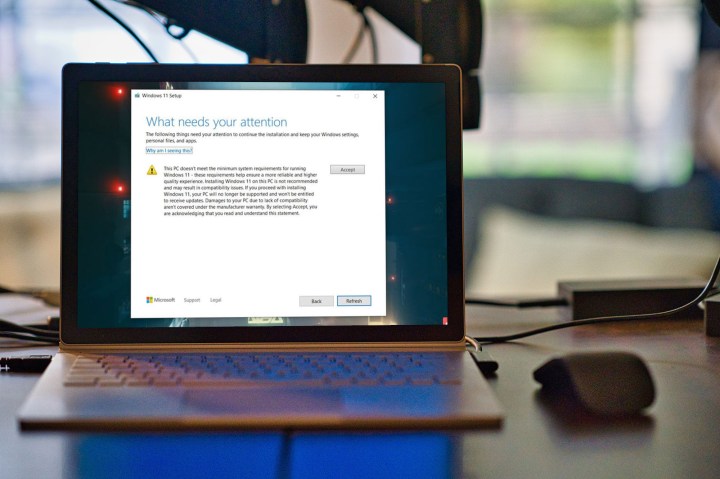Windows 11 just experienced its first “patch Tuesday,” where Microsoft issues a patch fixing issues on the second Tuesday of every month. This time around, many hoped the patch would include fixes for an issue with Windows 11 that can tank the gaming performance of AMD processors by as much as 15%. It didn’t fix the problem, though, and it may have made the situation worse.
TechPowerUp reports that the October 12 Windows 11 patch nearly doubled the level 3 (L3) cache latency of a Ryzen 7 2700X. This is the lowest-level cache on your processor, storing data streamed in from your RAM before passing it up to higher levels. According to AMD, the increased latency can result in up to a 15% drop in frame rates, especially in esports titles.

For specifics, TechPowerUp says it went from an L3 cache latency of 17 nanoseconds on Windows 11 to 31.9ns after the patch. The first result is already way above the 10ns cache latency the chip should have, making the jump with the recent Windows update all the worse.
The good news is that a fix is on the horizon. On Reddit, u/destiny2sk shared an image showing the release date for patches fixing problems with Windows 11 and AMD processors. According to the post, Microsoft will release a patch resolving the cache latency issue on October 19, while AMD will release a patch for a separate
We weren’t able to track down the original post, so these dates may not be accurate. However, AMD has confirmed that both issues are expected to be resolved in October.
Windows 11 is off to a rocky start. The operating system stirred up a lot of controversy when it was announced due to its strict CPU and TPM requirements. Now that it’s here, we’re hearing about all sorts of Windows 11 problems, from slowed gaming performance on AMD chips to a nasty memory leak bug.
As TechPowerUp notes, these issues are critical not only for AMD users, but also for the upcoming launch of Intel Alder Lake processors. We’ve heard a lot about Thread Director in this new generation, which reportedly improves performance when paired with Windows 11. If these problems aren’t addressed soon, AMD could enter the battle at an immediate disadvantage.
Editors' Recommendations
- You’re going to hate the latest change to Windows 11
- Windows 11 tips and tricks: 8 hidden settings you need to try
- Windows 11 vs. Windows 10: finally time to upgrade?
- The best Windows 11 themes we’ve tried so far this year
- Windows 11 24H2 or Windows 12? Here’s what’s coming soon





